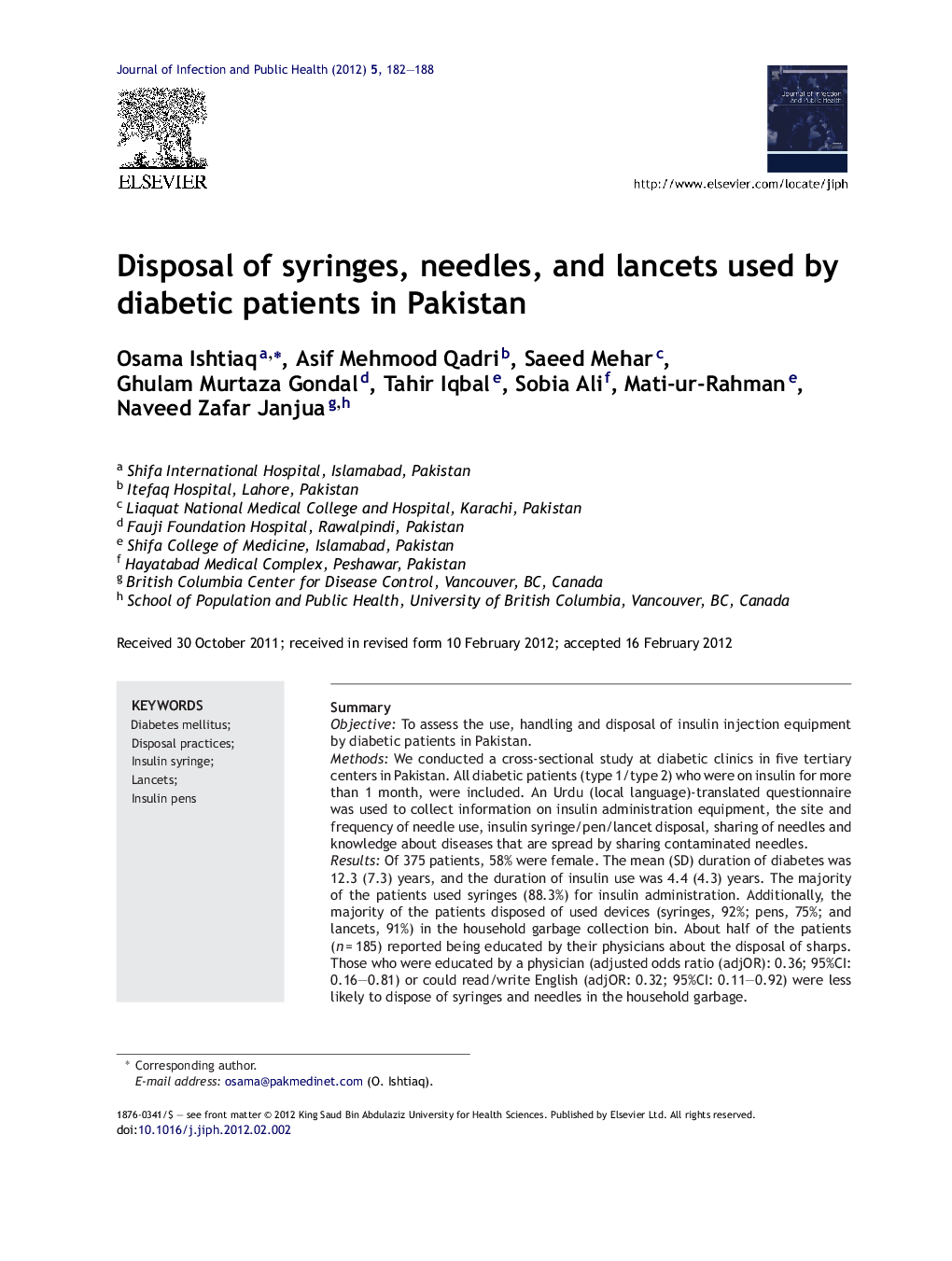| Article ID | Journal | Published Year | Pages | File Type |
|---|---|---|---|---|
| 3405964 | Journal of Infection and Public Health | 2012 | 7 Pages |
SummaryObjectiveTo assess the use, handling and disposal of insulin injection equipment by diabetic patients in Pakistan.MethodsWe conducted a cross-sectional study at diabetic clinics in five tertiary centers in Pakistan. All diabetic patients (type 1/type 2) who were on insulin for more than 1 month, were included. An Urdu (local language)-translated questionnaire was used to collect information on insulin administration equipment, the site and frequency of needle use, insulin syringe/pen/lancet disposal, sharing of needles and knowledge about diseases that are spread by sharing contaminated needles.ResultsOf 375 patients, 58% were female. The mean (SD) duration of diabetes was 12.3 (7.3) years, and the duration of insulin use was 4.4 (4.3) years. The majority of the patients used syringes (88.3%) for insulin administration. Additionally, the majority of the patients disposed of used devices (syringes, 92%; pens, 75%; and lancets, 91%) in the household garbage collection bin. About half of the patients (n = 185) reported being educated by their physicians about the disposal of sharps. Those who were educated by a physician (adjusted odds ratio (adjOR): 0.36; 95%CI: 0.16–0.81) or could read/write English (adjOR: 0.32; 95%CI: 0.11–0.92) were less likely to dispose of syringes and needles in the household garbage.ConclusionThe common disposal of sharps in the household garbage has implications for disease transmission. Education on the safe disposal of sharps may improve the disposal practices.
► This is a multi-center study of disposal practices of diabetic patients taking insulin. ► Majority of the patients used syringes for insulin administration. ► More than 90% of patients dispose their syringes and lancets directly in the household garbage.
